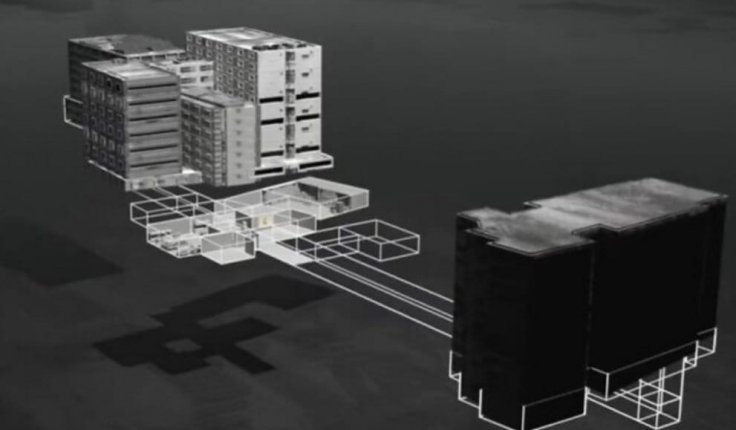Israel has declassified intelligence that exposes a secret Hezbollah financial hub hidden beneath Al-Sahel Hospital in Beirut. The Israel Defense Forces (IDF) claim the bunker contains hundreds of millions of dollars in cash and gold, reportedly used to support Hezbollah's operations. This revelation follows targeted Israeli airstrikes against Hezbollah financial assets on Sunday night.
During a televised briefing, IDF spokesperson Rear Admiral Daniel Hagari stated, "Tonight, I am going to declassify intelligence on a site that we did not strike—where Hezbollah has millions of dollars in gold and cash in Hassan Nasrallah's bunker. The bunker is located directly under Al-Sahel Hospital in the heart of Beirut."

Hagari added that the bunker contains at least half a billion dollars in cash and gold. Despite its financial significance, the site has not yet been struck. He suggested that these resources could potentially be used to rebuild Lebanon, but are instead funding Hezbollah's military activities. "This money could and still can be used to rebuild the state of Lebanon," Hagari emphasized.
The airstrikes on Sunday night targeted nearly 30 Hezbollah-linked locations, including Al-Qard Al-Hassan (AQAH), a financial firm tied to Hezbollah. Although AQAH is officially registered as a charity, both Israel and the United States have accused it of serving as a major financial arm for Hezbollah. The firm allegedly facilitates Hezbollah's access to cash and gold reserves used for its military efforts.
One of the key targets in the strikes was an underground vault reportedly holding tens of millions of dollars in cash and gold, used to fund attacks on Israel. While Hagari did not confirm whether all funds were destroyed, he warned that more strikes could follow, particularly against additional financial hubs.
This campaign is part of an intensified Israeli effort to cripple Hezbollah's financial network. IDF Chief of Staff Lt. Gen. Herzi Halevi stated that over 300 strikes were launched on Hezbollah positions in Lebanon within a 24-hour period. These strikes targeted critical financial and logistical hubs vital to the group's operations.
Al-Qard Al-Hassan has operated in Lebanon since the 1980s, offering credit to Lebanese citizens in exchange for gold deposits. Despite its charitable designation, Israeli and U.S. officials argue that the firm is a key player in Hezbollah's money laundering operations, financing the group's military and political activities under the guise of civilian banking.
Hagari also alleged that Hezbollah's income is sourced primarily from the Lebanese people and Iran, through methods like cash transfers via Syria and gold smuggling from Iran. Hezbollah-operated factories in Lebanon, Syria, Yemen, and Turkey reportedly generate substantial income for the group's activities, according to Israeli intelligence.
In a related event, Israel launched an airstrike on Monday in Syria, killing the head of Hezbollah's financial unit, known as Unit 4400. This unit is responsible for channeling Iranian funds to Hezbollah, largely through proceeds from Tehran's oil sales. This is the second major assassination of a Hezbollah financial leader in recent weeks, following the killing of Mohammed Jafar Ksir in early October.
The ongoing Israeli operations are part of escalating hostilities between Hezbollah and Israel, which began after Hezbollah supported Hamas in the aftermath of the October 7, 2023 attacks. Israeli officials estimate that around 2,000 Hezbollah fighters have been killed since the conflict widened in September 2023. Hezbollah has retaliated with rocket attacks on Israeli towns, including a recent strike near Tel Aviv.









